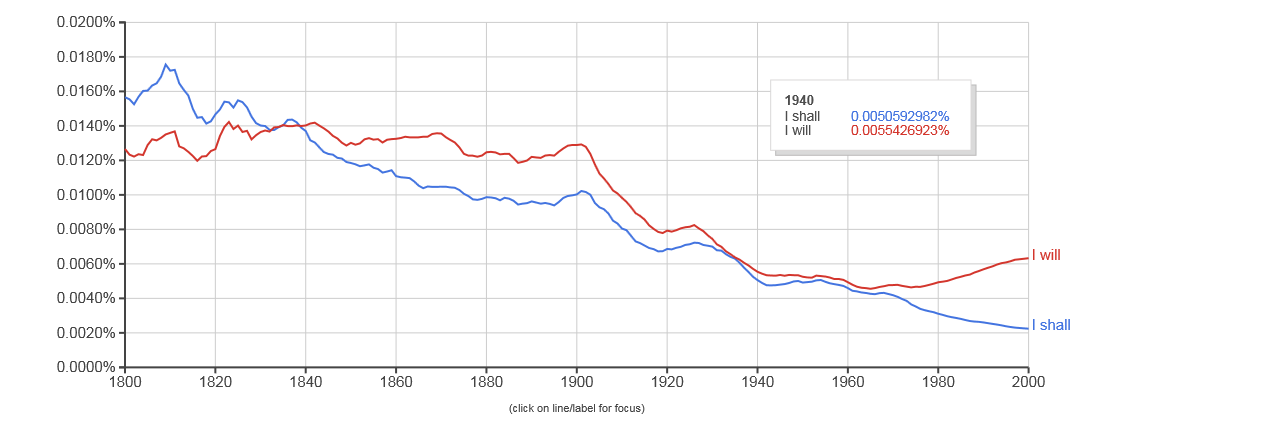The first part of the post has already been answered at When should I use "shall" versus "will"? and it's slightly complicated. I shall/you will used to be the standard construction for the future tense of to be, while I will/you shall was used for to express determination or certainty. Both constructions have changed since Austen's time, at least for common usage, particularly in American English, where shall has pretty much dropped out of use. Even 50 years ago "I shall" was the recommended future tense in high school grammar books, and for all I know still is. The usage has been blurred, I think, in part because of the difficulty in distinguishing prediction from intent. If someone says "I'll be there in five minutes" is there a clear distinction between "I really intend to be there in five minutes" (determination) and "My arrival will occur within five minutes" (prediction)? At any rate, "I shall" has been falling into disuse since the 1960s, as shown by https://books.google.com/ngrams/graph?content=I+shall%2CI+will&year_start=1800&year_end=2000&corpus=15&smoothing=3&share=&direct_url=t1%3B%2CI%20shall%3B%2Cc0%3B.t1%3B%2CI%20will%3B%2Cc0  although something else has also been going on in terms of both first-person usages, as evidenced by the long slow decline since about 1800.
although something else has also been going on in terms of both first-person usages, as evidenced by the long slow decline since about 1800.
Dan Bron's comment about Lydia's statement is correct: Lydia is requesting Kitty to bear a message. Austen's usage would probably be altered today from "I beg" to "I would be in your debt if", or alternatively "you would tell her so" to "you to tell her so".

 although something else has also been going on in terms of both first-person usages, as evidenced by the long slow decline since about 1800.
although something else has also been going on in terms of both first-person usages, as evidenced by the long slow decline since about 1800.